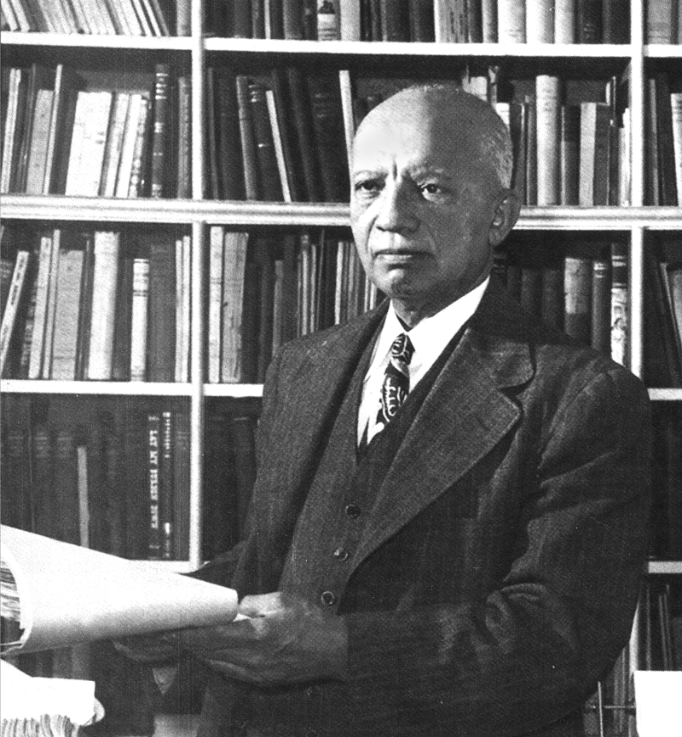Carter G. Woodson:
The Man of the Hour
By: Jasmine Cochran
It’s Black History Month, the four weeks of the year when many schools make room to include more information about contributions from Black folk in their lesson plans, Roots plays on TV, and social media timelines become inundated with snapshots of African-American greatness. Likely the most well-known of ethnically celebratory months in the nation, Black History Month continues to be a time when the country turns its eye towards accolades of the social, academic and scientific Black game-changers who came before us. It’s a concentrated time of reflection for some and enlightenment for others, but what do we know of the man behind it all?
Carter Godwin Woodson was a Virginia-born, Harvard-education historian. He died, quite recently, in 1950.
The son of former slaves, Woodson, in his youth, worked as a sharecropper and a miner. He didn’t start high school until his late teens. Harvard wasn’t his first brush with higher education, as he attended Berea College in Kentucky, and subsequently, both his bachelor’s and master’s degrees came from the University of Chicago. Woodson was one of the first African-Americans to receive a doctorate from Harvard.
Carter G. Woodson spent time as an education superintendent in the Philippines as a representative of the United States government. Once his own education was complete, he spearheaded a mission to ensure African-American history was taught in schools. Because of this, he’s known as the “Father of Black History.”
Writings
Woodson is probably best known as an author, specifically as the author who penned The Mis-Education of the Negro. This classic piece of literature, which highlights the indoctrination of black people and the effects it still carries in society, was penned in 1933 and is still in heavy circulation, today. In addition to this masterpiece, he founded and edited the “Negro History Bulletin.” Throughout his life, he authored more than 30 books.
The Origin of Black History Month
Woodson worked to get schools to participate in a program that would encourage African-American history. It was called Negro History Week, and it started in February of 1926. After its success and expansion, it became what we now celebrate as Black History Month. Woodson chose February because he wanted to honor Frederick Douglass and Abraham Lincoln, who were both born in February.
Legacy
The Dr. Carter G. Woodson African-American Museum stands, today, in St. Petersburg, Florida. The museum focuses on preserving the history of the St. Petersburg community, as it was the place where the first African-Americans sought work opportunities. They grew businesses and neighborhoods there, and the community “thrived culturally,” despite the discrimination that could have easily thwarted their efforts. The museum’s website states that its mission is:
- To preserve, present and interpret African American history and to engage a broad and diverse audience through these activities, and
- To promote an understanding among various groups that make up the St. Petersburg community in order to enhance our ability as a society to respect and value diversity and foster equal rights and social justice.
This month, spread the word about the founder behind the celebration of Blackness, and if you’re ever in St. Pete, I’m sure the staff at the Woodson Museum will issue you the warmest of welcomes.


